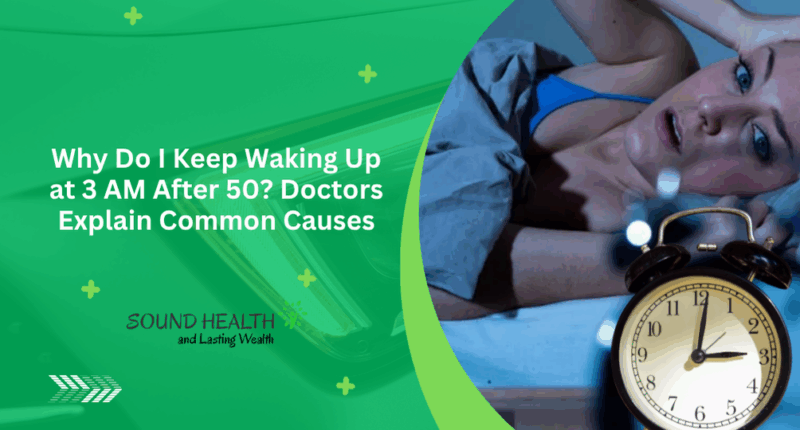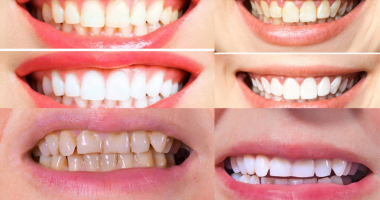Waking up at 3 AM and struggling to fall back asleep is a common complaint, especially among people over 50. This disruption in sleep patterns can leave you feeling groggy and frustrated the next day. While occasional awakenings are normal, frequent interruptions at this hour signal underlying factors that deserve attention. Jenie George, MD, Assistant Professor of Clinical Medicine (Sleep Medicine) and Neurology at Penn Medicine, explains that waking at this time is linked to a pattern called biphasic sleep. Historically, humans followed this rhythm by sleeping shortly after sunset, waking for a brief period to stay alert or attend to tasks, and then returning to sleep until dawn. However, modern lifestyles and health changes often prevent this natural cycle from functioning smoothly.
Understanding why your sleep falters at this point in the night is crucial for managing your overall health, especially for those past midlife. Below, we break down common causes, as well as less obvious conditions that could be disturbing your rest.

3 Common Reasons You Keep Waking Up at 3 AM
Certain lifestyle choices and daily habits often contribute to broken sleep around 3 AM. These common factors include:
Alcohol or caffeine consumption: Both substances alter sleep architecture. Alcohol may initially induce drowsiness but leads to lighter sleep and frequent awakenings. Caffeine acts as a stimulant, prolonging time to fall asleep and disrupting the overall rest cycle.
Lack of exercise: Physical activity has a well-documented positive effect on sleep quality. Inactivity often results in lighter, less restful sleep phases, making you more prone to waking during the night.
Daytime napping: While naps can be rejuvenating, long or late-day naps can reduce your natural sleep drive at night, causing middle-of-the-night awakenings.
For example, a study published in the Journal of Sleep Research found that individuals who drank alcohol before bed experienced a 50% increase in awakenings after 3 hours of sleep, often aligning with the 3 AM window. Similarly, older adults who reported no regular exercise were twice as likely to experience fragmented sleep patterns.
5 Sneakier Reasons You Keep Waking Up at 3 AM
Beyond the usual suspects, there are less obvious medical and physiological reasons that can interrupt your sleep cycle sharply around 3 AM:
Sleep apnea: This disorder causes breathing interruptions during sleep, dramatically reducing sleep quality. Many sufferers experience awakenings twice or thrice per night.
The need to pee (nocturia): Increased nighttime urination is common with age and can disturb restorative sleep. Conditions such as enlarged prostate or bladder issues are typical contributors.
Hormonal changes: After 50, hormonal fluctuations—especially reduced melatonin and estrogen—alter sleep patterns and increase night awakenings.
Restless leg syndrome (RLS): This neurological disorder causes an irresistible urge to move the legs, worsening at night and creating difficulty staying asleep.
Diabetes: Blood sugar imbalances related to diabetes can affect sleep indirectly through nerve damage or more frequent bathroom visits.
Consider the experience of Linda, a 57-year-old who noticed consistent 3 AM awakenings paired with leg discomfort. After diagnosis with restless leg syndrome, her treatment plan helped restore more continuous sleep. Similarly, individuals with untreated sleep apnea face increased risks of cardiovascular disease, making diagnosis and intervention critical.
The Bottom Line on Waking Up at 3 AM
Dr. Jenie George emphasizes that waking at 3 AM is not necessarily abnormal in isolation; this pattern ties to the ancestral biphasic sleep rhythm. However, persistent awakenings at this hour that impact daytime function or cause distress warrant medical or behavioral evaluation. Adjusting lifestyle factors—reducing caffeine and alcohol intake, increasing physical activity, and limiting daytime naps—can yield significant improvements.
For those suspecting medical conditions like sleep apnea or restless leg syndrome, consulting a sleep specialist is crucial. Addressing contributing health issues strengthens sleep resilience and helps maintain the restorative cycles required for optimal brain and body function.
As aging naturally brings shifts in sleep architecture, cultivating sleep-friendly habits combined with medical oversight when needed ensures better nights and healthier days. Waking briefly at night can be a legacy of human sleep biology; persistent disturbances, however, offer valuable clues to improve your nights and safeguard vitality after 50.
Also Read | Restless Legs at Night? 4 Hidden Causes Every Woman Should Know










